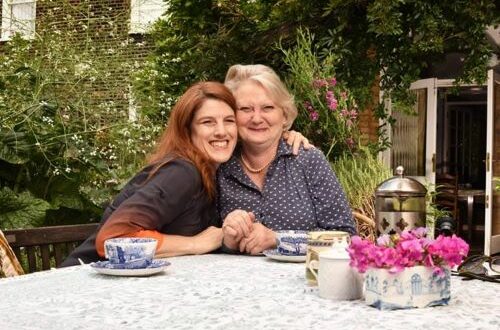The Gift of Silence
Silence is a rare find. Most everywhere we go there is noise. Whether it is external noise or noise in our own minds and hearts. Our world is only getting louder and louder and often we think of silence is unproductive or invaluable. The truth is that silence is a gift.
Silence is a rare find. Most everywhere we go there is noise. Whether it is external noise or noise in our own minds and hearts. Our world is only getting louder and louder and often we think of silence is unproductive or invaluable. The truth is that silence is a gift.
One of the most important lessons I learned while a chaplain at Parkland Hospital was the gift and value of silence. Being a person that enjoys conversation, speaking and whose mind races, I do not always understand or appreciate the gift it can be and its value. When someone or a group is going through something difficult, silence can be the greatest gift given.
When someone is grieving or going through something difficult not being comfortable with silence reveals something about ourselves. Parker Palmer in Let Your Life Speak says,
“One of the hardest things we must do sometimes is to be present to another person’s pain without trying to ‘fix’ it, to simply stand respectfully at the edge of that person’s mystery and misery.”
I love the words in this quote – “stand respectfully”. Oh how we love to fix things! It makes us feel like we’ve make a difference, helped done something – it’s about us. Palmer goes on to say,
“Standing there we feel useless and powerless … in an effort to avoid those feelings, I give advice, which sets me, not you, free.”
Ouch. So when I’m with someone in their pain, misery, confusion, etc., is it about me or is it about them? It’s a question that needs to constantly be asked.
I understand standing respectfully as honoring what they are going through and honoring the process. Pain and grief are truly mysterious things and it is amazing that we think that we can “fix” them. One of the ways we can stand respectfully and not minimize what the other is going through is to be silent and let them go through whatever processing they need to go through. In that silence their minds and hearts might be racing or they might be at a standstill. Whatever is going on internally needs to happen and does not need for us to circumvent the process. Many times when we speak it is because WE are uncomfortable – it really has nothing to do with them.
Now, I’m not saying don’t say anything at all, I’m just encouraging us to consider silence as a gift, and more than likely a greater gift than our words. Ruth Haley Barton in Strengthening the Soul of Your Leadership says,
“I don’t know about you, but sometimes I can literally feel – deep in my bones – that if I do not shut my mouth for a while I will get myself in trouble, because my words will be completely disconnected from the reality of God in my life.”
In the case of someone grieving we might be completely disconnected to the reality of God in that person’s life as well. It takes discernment to know when to speak and when not to speak. Most of us can recall a time when we are talking and thinking in our minds “I should just shut up right now”. May those times decrease as we learn to discern how the Spirit is leading!
Barton goes on to say later in her book,
“Seeing and naming my own woundedness helps me know how to be with someone else as they are getting glimpses of their woundedness, and I am less compelled to meddle so much.”
What a great word for us. It is when we have travelled difficult paths, have traveled deeper and deeper within our own souls, that we learn to value the silence, the process of grief, the ups and downs, the time it takes. When we experience this in our own lives, we are not so quick to jump into another’s.
May we learn to discern when words and which words need to be spoken. May we stand respectfully in the mystery of another person’s pain and may we learn to go deeper ourselves so that we can walk alongside others more authentically.


